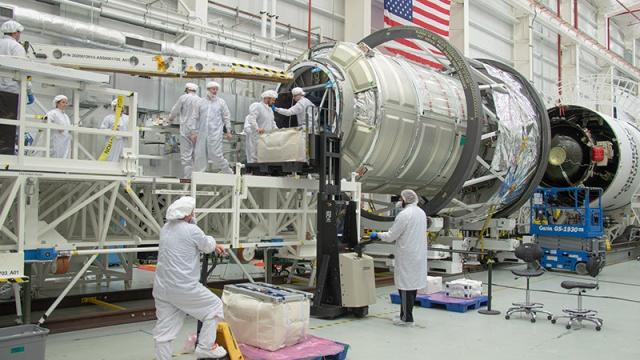A group of engineers is testing an air conditioning system in space, seeing how two basic processes work in an environment with less gravity than Earth in order to design a system for future habitats on the Moon and Mars.
The Flow Boiling and Condensation Experiment (FBCE) launched on board a Cygnus cargo spacecraft to the International Space Station (ISS) on August 1 among 8,344 pounds (3,785 kilograms) of cargo. The experiment, designed by engineers at Purdue University, will measure the effects of the microgravity environment on condensation.
“We have developed over a hundred years’ worth of understanding of how heat and cooling systems work in Earth’s gravity, but we haven’t known how they work in weightlessness,” Issam Mudawar, professor of mechanical engineering at Purdue University, said in a statement.
This week’s launch carried the second module to a Purdue-designed facility that has been on board the ISS since August 2021, collecting data on how boiling works in the microgravity environment. Both boiling and condensation are crucial to all heating, ventilation, and air conditioning systems designed to work on Earth, but the FBCE will now test how they fare in space. Together, the two modules will stay on board the ISS until 2025.
“We are ready to literally close the book on the whole science of flow and boiling in reduced gravity,” Mudawar said. In doing so, the team will not only answer some questions in the world of fluid physics, but the experiment will also help design heat and air conditioning systems for habitats on the Moon or Mars where gravity is not as strong as it is on Earth.
Data collected by the experiment could also help inform how to refuel spacecraft in orbit for longer-duration flights by understanding how cryogenic liquids that are used as a propellant behave in space.
FBCE has been in the works for 11 years under a collaboration with NASA’s Glenn Research Center in Cleveland.
For more spaceflight in your life, follow us on Twitter and bookmark Gizmodo’s dedicated Spaceflight page.
